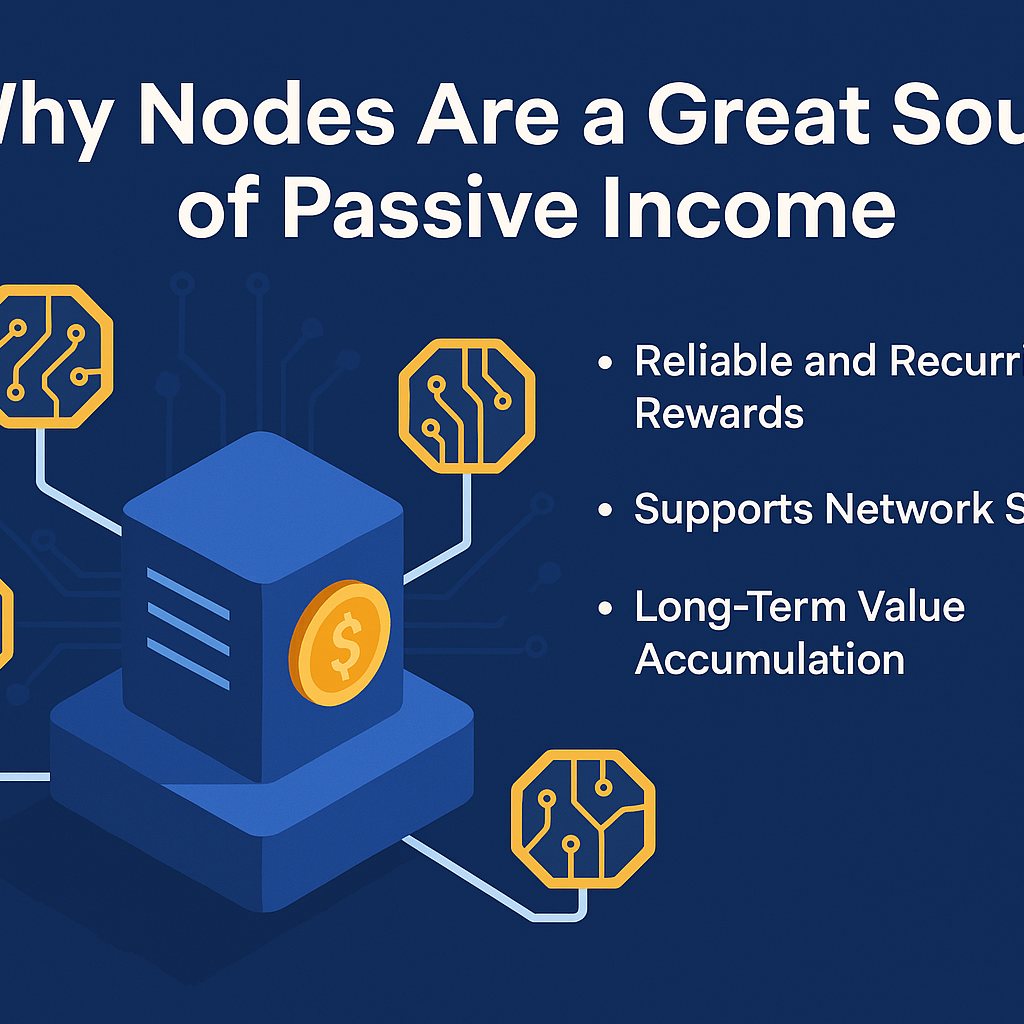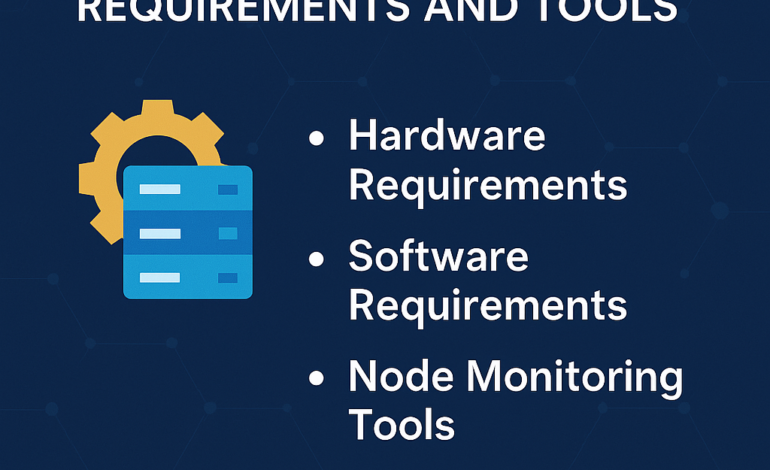As the blockchain ecosystem grows, more individuals are turning to cryptocurrency not just as a form of investment but also as a source of passive income. One increasingly popular method is running a blockchain node. Whether you’re a tech-savvy enthusiast or a long-term investor, earning from nodes can be a consistent and reliable income stream.

What Is a Node?
In blockchain technology, a node is any device (usually a computer) that participates in the network. It performs critical tasks such as validating and relaying transactions, maintaining a copy of the distributed ledger, and supporting consensus mechanisms (like Proof of Stake or Proof of Work).
There are various types of nodes: Full Nodes, Validator Nodes, Masternodes, Oracle Nodes, and Light Nodes. Depending on the blockchain, running these nodes may require holding a certain number of tokens, technical setup, and consistent uptime—but in return, you earn node-based rewards.
How Do Nodes Generate Passive Income?
Nodes generate passive income by performing tasks that support the network. In exchange, the blockchain rewards node operators with its native cryptocurrency. Here’s how:
- Staking Rewards: In Proof-of-Stake (PoS) networks, you earn rewards for locking up your tokens and helping validate blocks.
- Block Rewards & Fees: Validator or masternode operators earn a portion of transaction fees and block rewards.
- Data Processing Fees: Oracle nodes (like Chainlink) earn fees for providing off-chain data to smart contracts.
- Decentralized Hosting Fees: Some networks (e.g., Flux) pay node operators for hosting decentralized apps and services.
Benefits of Node-Based Passive Income
1. Reliable and Recurring Rewards
Once your node is set up and running, you can start earning automatically, often on a daily or weekly basis. Unlike trading, this income isn’t dependent on market timing.
2. Supports Network Security
By running a node, you’re contributing to the decentralization and stability of the blockchain—earning you ethical income that supports the ecosystem.
3. Long-Term Value Accumulation
Some tokens earned from node rewards may appreciate in value over time, providing an upside beyond the initial reward rate.
4. Flexible Participation
You don’t always need advanced tech skills. Many PoS networks allow token delegation, where you delegate your stake to a validator and still earn a portion of the rewards—without running a node yourself.
5. Multiple Income Options
From validator nodes on Ethereum 2.0 to masternodes on Dash or decentralized hosting nodes on Flux, you can choose a network that aligns with your technical ability, investment level, and risk tolerance.
Real-World Examples
| Network | Type | Est. Annual ROI | Requirements |
|---|---|---|---|
| Ethereum 2.0 | Validator Node | 4–7% | 32 ETH, uptime |
| Cosmos (ATOM) | Delegator Node | 7–10% | No min. (delegation) |
| Dash | Masternode | 5–7% | 1,000 DASH |
| Flux | Compute Node | 10–25% | VPS, FLUX tokens |
Things to Consider Before Running a Node
While the benefits are appealing, here are some important considerations:
- Initial Capital: Some nodes require a significant upfront investment.
- Technical Setup: Validator and masternodes may need server setup, 24/7 uptime, and maintenance.
- Volatility: Rewards are in crypto, which can fluctuate in value.
- Security: If your node goes offline or gets compromised, you may lose rewards or even staked tokens (slashing).
Final Thoughts
Running a blockchain node is one of the most sustainable and ethical forms of passive income in the crypto space. Whether you’re staking coins, running a validator, or hosting apps on decentralized infrastructure, nodes offer a practical way to grow your crypto portfolio with minimal daily effort.
If you’re looking for a way to generate income while supporting decentralization and innovation, nodes are a smart and forward-thinking investment.
FAQs
Q: Can I earn passive income with crypto if I don’t have technical skills?
Yes. You can delegate your tokens to a trusted validator in PoS networks and still earn rewards.
Q: How often do nodes pay rewards?
Reward frequency varies by network. Some pay daily, others weekly or per block.
Q: Is it safe to run a node at home?
For some networks, yes. But using a Virtual Private Server (VPS) or trusted cloud service can improve uptime and reduce risk.
Top Blockchain Networks Offering Node-Based Rewards
Why CRM & Marketing Automation Integration Must-Have in 2025



